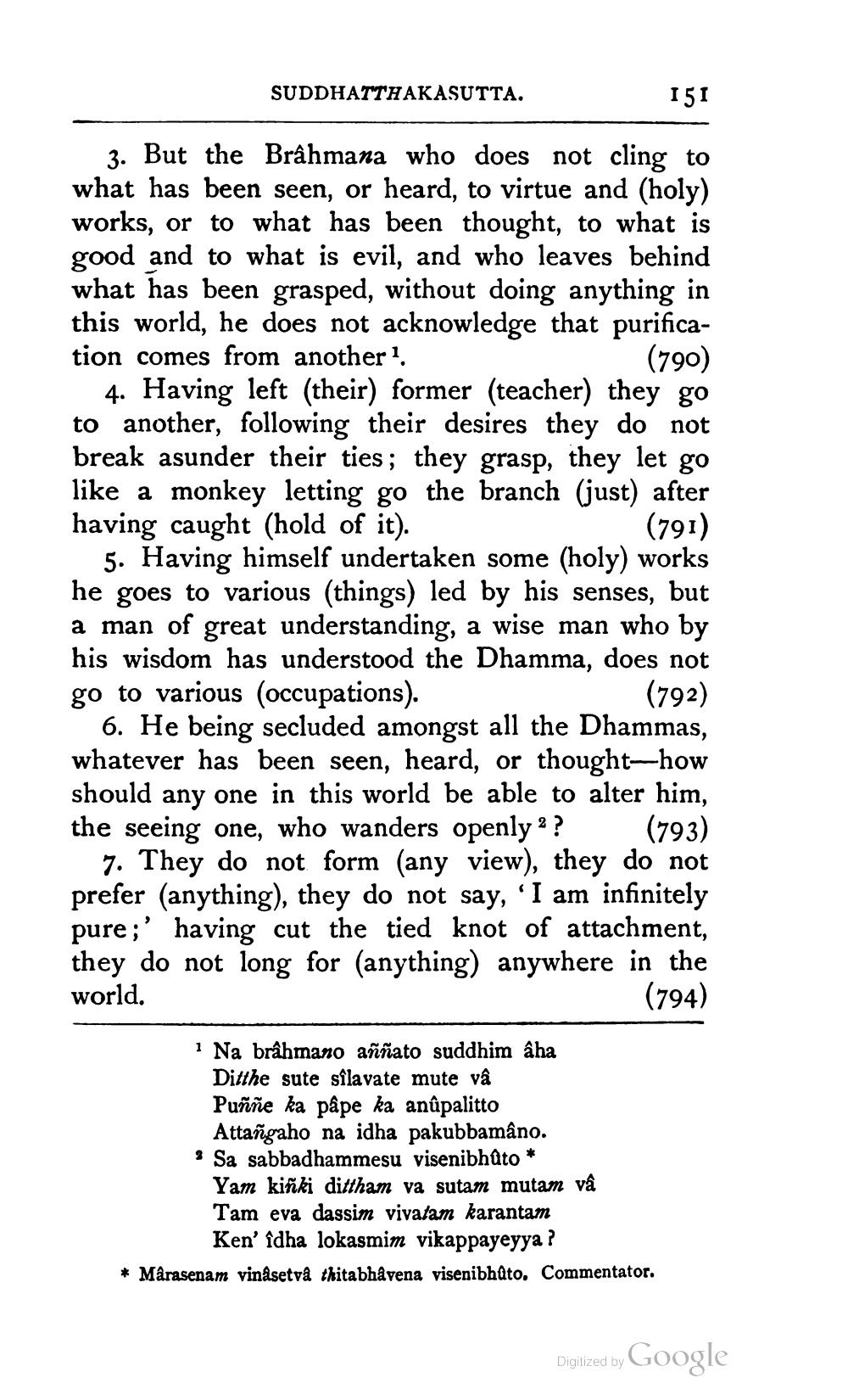________________
SUDDHATTAAKASUTTA.
151
3. But the Brâhmana who does not cling to what has been seen, or heard, to virtue and (holy) works, or to what has been thought, to what is good and to what is evil, and who leaves behind what has been grasped, without doing anything in this world, he does not acknowledge that purification comes from another 1.
(790) 4. Having left (their) former (teacher) they go to another, following their desires they do not break asunder their ties; they grasp, they let go like a monkey letting go the branch (just) after having caught (hold of it).
(791) 5. Having himself undertaken some (holy) works he goes to various (things) led by his senses, but a man of great understanding, a wise man who by his wisdom has understood the Dhamma, does not go to various (occupations).
(792) 6. He being secluded amongst all the Dhammas, whatever has been seen, heard, or thought-how should any one in this world be able to alter him, the seeing one, who wanders openly 2 ? (793)
7. They do not form (any view), they do not prefer (anything), they do not say, 'I am infinitely pure;' having cut the tied knot of attachment, they do not long for (anything) anywhere in the world.
(794)
Na brâhmano aññato suddhim aha Ditthe sute sîlavate mute vâ Puññe ka pâpe ka anûpalitto Attañgaho na idha pakubbamâno. : Sa sabbadhammesu visenibhůto *
Yam kiski dittham va sutam mutam vâ Tam eva dassim vivatam karantam
Ken' îdha lokasmim vikappayeyya ? * Marasenam vinasetvà thitabhâvena visenibhato. Commentator.
Digitized by Google




